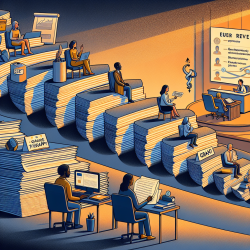The Value of Biobanks in Research
Biobanks are essential for translating research into clinical practice, particularly in personalized medicine. They store biological samples linked with genetic and health data, facilitating research that can lead to breakthroughs in treatment strategies.
Challenges in Biobanking
The article identifies several challenges in biobanking:
- Operational and financial sustainability
- Ethical, legal, and social implications (ELSI)
- Standardization and harmonization of data
- Public trust and engagement
Applying Biobanking Principles to Child Therapy
To improve child therapy outcomes, practitioners can learn from biobanking strategies:
- Data-Driven Decisions: Use standardized data collection methods to track therapy progress and outcomes, similar to how biobanks ensure data consistency.
- Ethical Practices: Maintain high ethical standards by obtaining informed consent and ensuring data privacy, reflecting biobank governance models.
- Collaboration: Engage in collaborative networks to share resources and data, akin to biobank consortia that enhance research power.
- Sustainability: Develop sustainable business models for therapy services, ensuring long-term viability without compromising care quality.
Encouraging Further Research
Practitioners should stay informed about advancements in biobanking and personalized medicine. Continued education and research can lead to innovative therapy methods tailored to individual child needs, much like personalized treatments in medicine.
Conclusion
By adopting biobanking principles, speech-language pathologists can enhance therapy outcomes for children. Emphasizing data-driven decisions, ethical practices, collaboration, and sustainability will ensure that therapy services remain effective and viable.
To read the original research paper, please follow this link: Has the biobank bubble burst? Withstanding the challenges for sustainable biobanking in the digital era.










